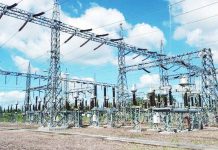
THE RECENT report blaming wage hikes for the slowdown of Western Visayas’ economy is nothing new. Every time workers win even the smallest increase, big business and their think tanks cry out that the sky is falling. They want us to believe that the problem is our demand for a decent life, not the system that bleeds both workers and farmers dry.
Workers are not the cause of the economic crisis.
The Philippine Statistics Authority itself reported that Western Visayas’ growth slowed from 6.8% in 2023 to 4.3% in 2024, with agriculture suffering the steepest drop, −7.3% in 2024 after −6.2% in 2023. This was not because farmworkers got a ₱40 increase (bringing their daily wage to ₱480), or because non-agricultural workers in bigger firms finally reached ₱513 a day.
The real causes are the same old problems. Landlords still dominate agriculture while farmers remain landless and in debt. Traders dictate farmgate prices, leaving peasants with barely enough to survive. Import liberalization floods markets with cheap rice, sugar, and vegetables, killing local production. And profit hoarding by corporations, local elites, and foreign monopolies ensures small producers are left with crumbs.
Even with recent increases, wages are still far below what ordinary families need to live decently. The family living wage for a family of five is estimated by IBON Foundation at ₱1,200–₱1,300 a day, more than double the current ₱513 minimum in the region.
Between 2012 and 2022, Filipino workers’ labor productivity grew nearly 29% while real wages rose only about 21% — meaning capitalists captured the larger share of wealth created. To call the latest wage hikes “aggressive” or “excessive” is an insult when workers continue to subsidize the profits of the elite through cheap labor.
How can ₱480–₱513 a day be called “too much” when big landlords and corporations rake in millions and government officials waste billions in pork barrel funds?
Meanwhile, Western Visayas contributed ₱641.76 billion to the national economy in 2024, ranking 8th among all regions. Yet almost 1 in 5 families in the region remain poor. Who benefits from this wealth if not the workers and peasants who created it?
Wages are not a burden. They are the rightful share of the wealth produced by labor. In fact, every peso earned by workers goes back into the local economy — into food, transport, housing, and schooling. What truly drags down our economy is not wages, but monopoly control of land and industries, corruption and pork barrel politics, dependence on foreign loans and imports, and the siphoning of profits by big business out of our communities.
We also recognize that many micro, small, and medium enterprises (MSMEs) struggle with rising costs, but the answer is not to suppress workers’ wages. MSMEs are the backbone of the local economy, employing the majority of workers in Western Visayas. Instead of pitting them against labor, the government should provide them with real support — through subsidies, tax relief, access to low-interest credit, affordable utilities, and protection against unfair competition from imports and big monopolies. Strengthening MSMEs alongside ensuring living wages creates a cycle of stronger domestic demand, healthier local businesses, and more resilient communities.
Even international experience shows that higher wages do not kill growth. Studies across Asia and Latin America have found that real wage hikes stimulate local demand, strengthen small businesses through higher household spending, and improve productivity by reducing worker turnover and boosting morale. It is poverty wages, not decent wages, that trap economies in stagnation.
Instead of limiting wage hikes to please investors, the government should:
* Guarantee a living wage that matches the real cost of living;
* Stop import liberalization that destroys farmers’ livelihoods.
* Provide genuine support to small producers, vendors, and MSMEs, including subsidies, access to affordable credit, tax relief, and protection from unfair competition with big corporations and imports;
* Implement genuine land reform and national industrialization so our economy can truly stand on its own.
The struggle for higher wages is part of the wider struggle for justice, dignity, and a society where wealth is shared by those who produce it. We call on all workers, peasants, and ordinary people: do not be deceived. It is not wage hikes that slow growth — it is exploitation, corruption, and foreign domination.
To our fellow Panayanons, let us not be deceived. The problem is not wages, but greed and exploitation. Justice is never handed down, it is won through struggle. – BAGONG ALYANSANG MAKABAYAN – PANAY <bayanpanay2014@gmail.com>







